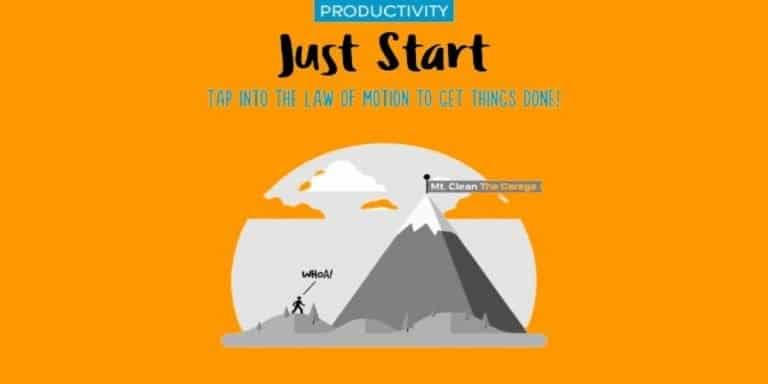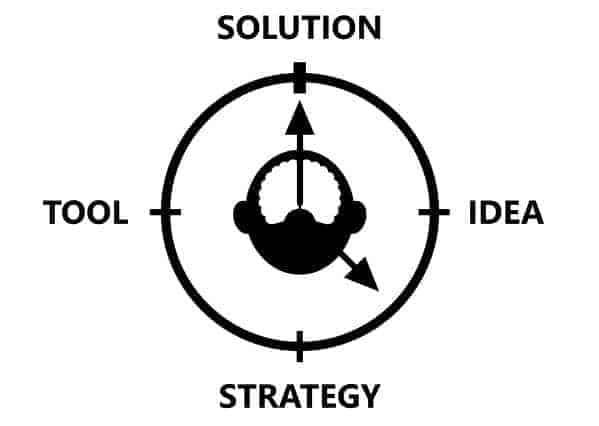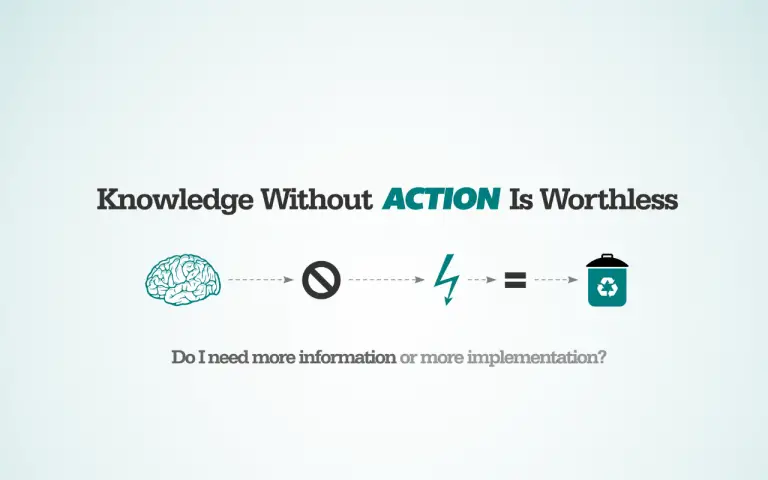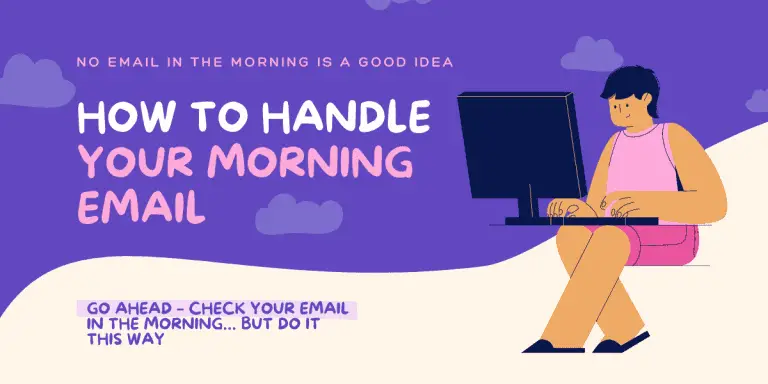Strategies for Dealing With Challenging Behaviour
Behaviour Challenges
Strategies for Dealing With Challenging Behaviour
These challenges ask you to perform a specific behavior each day for the entire 30 days of the challenge. This could include things such as replacing a soda with water each day, avoiding mainstream news, or paying for everything you buy for the month with cash.

Listening to Audiobooks Is Just As Good As Reading, If Not Better, So Back the Hell Off
1. Do a daily power pose
Every day, I will spend 2 minutes doing nothing but standing in a pose of confidence and power
- For 2 minutes (minimum) stand with your feet apart parallel to your shoulders,
and with your arms spread out (like you’re celebrating a victory) or your hands on your hips, like you mean business! - Start your day with a power pose
- Strike a power pose right before any activity that requires a feeling of confidence and power
- This challenge is based on this TED video by Amy Cuddy
2. Do 5 minutes of nothing each day
Every day, I will set aside at least 5 minutes a day to do nothing
- Just sit, and do nothing for 5 minutes a day, except BE
- Simply relax, breathe, and do nothing
- Thinking about the projects on your desk or emails you have to write is not
allowed that’s doing something! - During the first several days of doing this challenge, it may be difficult to ‘turn off’ all the noise in your mind, but stick with it it will eventually get quieter, and
what you discover hidden underneath all the noise may surprise you
3. Raise your food/eating awareness
Before eating a meal, I will: Quickly but clearly, visualize what a healthy me looks like, I will say my ideal weight out loud, and I will say out loud what specifically I believe the effect of the food I’m eating will have on my health (good or bad)
- Practicing this challenge should take no more than 30-60 seconds before each
meal - State your ideal weight by saying something like: ’My ideal weight is 170 pounds.’
- State the effects of the food you’re eating by saying something like: ‘Eating this
salad will give me the energy and nutrients I need to feel healthy.’, or, ‘Eating this the burger is an indulgence it’s full of fat, calories, and sodium that will affect my health negatively.’ - Feel free to eat whatever you want, just be sure to complete the challenge each
the time you eat a meal
4. Replace 1 soda a day with water
If I get thirsty, then I will consider water as a choice
- Flavor your water by squeezing a lemon, lime, or orange wedge into it
- Used crushed ice in your water (with citrus juice) to make a simple ‘shakeup’
- No added sugar allowed (even when you squeeze citrus juice into your water)
- Instead of drinking an entire soda at once, drink half, and substitute the other half with water
- Always have cold, freshwater instantly available
- Sip your water throughout the day, instead of trying to drink the entire thing at
once - Place simple ‘Drink water’ reminders in your environment
- Weigh yourself before and after you begin this challenge note the difference
- Whenever you drink your water, consider the positive benefits to your health and wallet
- Read about the effects of drinking soda
5. Pay for purchases under $100 with cash
If I get thirsty, then I will consider water as a choice
- Carry $100 cash with you at all times use it
- At the end of each week, replenish your cash supply, in case it’s low
6. Turn off all negativity
If I find myself being negative in any way, then I will immediately change my thinking, words, outlook, attitude, location, activity, environment, or people I’m with
- Negative scenarios to avoid: Judging, complaining, pessimism, anger
- Give yourself the best change by avoiding: Negative people, negative
conversations, negative news negative anything!
7. Avoid mainstream news
If I think I really want to know what’s going on in the world (the bad stuff), I will ask someone
- This doesn’t mean you avoid ALL news, just most of the sites that focus on
dispensing an ongoing flood of misery, pain, killing, anger, fear, and hatred, such as cnn.com, nbcnews.com, abcnews.com, and so on - Realize that if you read the news on other sites, such as Twitter, Google+, or similar
sites, you’ll likely get just enough information about what’s going on in the world to feel informed, but without overwhelming your mind with tons of negativity - Use a site like Google News to create a customized news page that is void of the negative ‘headline news’ stories, but full of other, positive information you enjoy
- If you can’t help yourself and do peek at the mainstream news, only do a quick
a glance to scan the headlines (if you must), then get out, before negative feelings
of any kind get a chance to take root!
8. Chew your food slowly
If I take a bite of food, then I will chew it slowly and completely, savoring the flavor of my food
- Give yourself plenty of time for eating so you’re not rushed to gulp your food
down - Eat small bites
- Wait until you’re completely done chewing before taking another bite (put your fork and knife down between bites)
- Discover the benefits of chewing your food slowly
9. Arrive early
If there’s somewhere I need to be at a specific time, then I will arrive at least 5 minutes earlier (or more) than necessary
- Discover some tips for becoming a punctual person
10. Adopt a positive perspective
If I find myself in a situation where I’m considering the direction something will go or the reason why something happened, I will consider the positive side of things by asking the question, ‘What if [positive result or positive reason]?’
- Instead of asking disempowering questions such as, ‘What if it doesn’t turn out?’,
- or, ‘What if I fail?’, ask yourself empowering questions such as, ‘What if it turns out better than I expected?’, or, ‘What if I succeed?’
- The basic idea is turning disempowering perspectives and questions into empowering ones
- Other examples are: ‘What if I have a great time?’, ‘What if this is the best project I’ve ever worked on?’, ‘What if I have a greater impact with this talk/presentation than I ever have?’
11. Think of others first
Every day, I will consider the needs, thoughts, perspectives, feelings, desires, and words of others, before my own, and act accordingly
- When others speak, be quiet and listen
- When others express a need, find a way to fill it
- When others experience a problem, try to provide a solution
- When someone shares their perspective, pay attention to it
- Wherever possible, put the wants, needs, and desires of others before your own
12. Put things away
If I use something (a tool, clothes, a towel, a book, etc.), then I will put it away when I’m finished
- Put things away as soon as possible, not sometime today!
- Teach yourself the value of order and structure
- Remember A place for everything, and everything in its place!
13. Track your distractions
If I am distracted from doing something productive for any reason (a phone call, an
intrusion into my office, my own desire to check email/Facebook/Twitter, etc.), then I will track that distraction by placing a mark on a piece of paper
- For best results, before sitting down to do productive work, intentionally establish a specific amount of time (15, 30, 50 minutes) that you will be working before taking a break at any point during that productive time period, if you’re distracted from working, mark it down
- Handle disruptions, distractions, and email/Facebook/Twitter, during your breaks
- Mark distractions on a piece of paper using simple lines (||||)
- Use the same sheet of paper for the entire month, but separate the tracking of
each day’s distractions with a horizontal line across the page - Awareness of how, when, and where distractions occur in your life is an important step to minimizing, or even eliminating them
14. Improve your body language/non-verbal communication
Every day, I will pay particular attention to my body language, and how to improve it; How I stand, my posture, how I use my hands, my eye contact, how I sit, and so on
Here are 7 ways to improve your body language as you become more aware:
i. Smile
ii. Stand up straight, with confidence!
iii. Maintain good eye contact, but avoid staring
iv. Mirror the other person’s body language, gestures, and mood
v. Occasionally, lightly touch the person somewhere on their arm as you
Share something exciting, warm, or funny with them
vi. Nod when listening
vii. Avoid crossing your arms
15. No electronics after 10 pm
Every day, I will avoid using electronics after 10 pm
- ‘Electronics’ includes phones (except for conversations about something
important), tablets, laptops, and TVs - Alternative activities could include: Reading a book or magazine, having a
face-to-face conversation, visualizing and meditating about good things, doing
something creative, doing something productive, and so on
16. Maintain a daily ‘Action Journal’
Every day, I will write down the 3 most significant things I’ve accomplished that day
- For each entry: Include the date and write a short sentence for each of the day’s
accomplishments describing in detail what specifically each accomplishment
involved, and how it benefited your life or how it helped you move closer to achieving your goals - You can use paper or-or something digital for capturing your entries
- Try to capture the entire 30 days’ entries altogether (in a single notebook or
document) so as you add entries each day, you can see what you’ve already
accomplished - Spend at least 35 minutes each day on this challenge
17. Maintain a daily ‘Food Journal’
If I eat or drink something, I will write down in detail what it was
- As soon as you eat and/or drink something, capture what it was by writing down
the date, food/drink, and quantity of what you ate - Include basic details when you eat a sandwich, don’t just write a sandwich, but
include the items on the sandwich - Write down what you eat as soon as you possibly can
- You can use paper or something digital for capturing your entries
- Be honest with your entries
- Find, download, and print a food diary template
- Try to capture the entire 30 days’ entries all together (in a single notebook or
document) so as you add entries each day, you can see what you’ve already
captured
18. Maintain a daily ‘Money Journal’
Every day, I will record what I’ve earned and what I’ve spent
- Keep it simple: On a sheet of paper or an electronic document, create two
headings Earned and Spent, then at the end of each day, record what you’ve
earned and what you’ve spent under the appropriate heading - If you earn a salary, break down the daily average you earn and write it down each day
- If you earn an hourly wage, and you normally work the same number of hours
each day, write down the money you earn for each day - Write down individual items, individually If you have 3 expenses during the day,
write down each one, don’t combine them into one entry - You can use paper or something digital for capturing your entries
- After you’ve captured each day’s entries, you can either maintain a running total
for both categories (Earned and Spent), or you can total them at the end of the
month
19. Be specific, detailed, and accurate in what you say
When I speak, I will be as specific, detailed, and accurate as possible
- When you compliment someone is specific about why you’re complimenting
them (I loved your presentation, especially the part on being specific I’m
going to use that in my life by…) - When telling a story, stick to reality, and avoid embellishing and exaggerating to
make the story sound better than it actually is - Only state things as facts if you really know what they are facts, not because of you
think they should be - When talking about people, places, numbers, and so on, use specific names and figures as much as possible
- This challenge helps enhance the clarity of your thinking and sharpens your
ability to distinguish reality more accurately so you can react and adapt to it better
20. Upgrade your vocabulary
When I speak, I will use empowering phrases instead of disempowering phrases
- Replace can’t statements with don’t statements ‘ I can’t eat chocolate cake.’
becomes, ‘I don’t eat chocolate cake.’ or ‘I can’t go tonight.’ becomes, ‘I don’t have time to go tonight.’ - Replace I’ll try statements with I will statements ‘ I’ll try to do a good job.’
becomes, ‘I will do the best I can!’, or ‘I’ll try to be there on time.’ becomes, ‘I will
be there on time.’ - Can’t is a restriction, don’t is a choice
- Try is beyond your control, will give you control
21. Pay attention to what you eat
Before I eat something, I will be clear about what’s in it
- When you don’t cook something from scratch, either read the food label
ingredient list, or learn as much about what’s in it as possible - For this challenge, you want to focus more on information related to ingredients,
not fat or calories - As you review the ingredients, read it slow to grasp individual items, and consider for a moment the effect of that ingredient on your health
- Not sure what an ingredient is? Use your smartphone or computer to Google it
quickly - Pay particular attention to ingredients that you continue to discover in the foods
you choose to eat - Examine everything, from bread to packaged meat, to chips, chocolate, frozen
pizzas everything!
22. Use peoples’ names
When I talk to people (both people I know well, and people I just met), I will use their names
- Dale Carnegie, author of one of the bestselling guides to making friends and
influencing people once wrote: ‘The sweetest sound to a person’s ear is their own name.’ - Opportunities to use someone’s name include: When you first meet them (Nice
to meet you, Bob), when you greet them (Hey, Bob), when you want to ask them a question (Bob, can I ask you a question?), when you say thank you (Thanks, Bob), or when you say goodbye (See you later, Bob) - Don’t go overboard with it, or it may come off as strange and make the other
person uncomfortable - Who can you call by their names? Friends and family, coworkers, people who
wait on you, employees, people you talk to on the phone, or anyone who is
wearing a name badge - To remember a person’s name that you just met: Pay attention when you meet
them, repeat their name back to them (Nice to meet you, Kathy), and when you
have a moment, repeat their name out loud a few times - Click here for more tips on remembering peoples names
23. Be complementary
Every day, I will find something positive and specific to compliment someone about
- Compliment family members, friends, co-workers, strangers, customers, clients,
kids, teachers, mentors, people who help you – everyone! - Be sincere with your compliment don’t say something nice about something that
you really don’t think is great – an insincere compliment is worse than no compliment at all - Be specific with your compliment – provide a specific reason for it, such as the
the positive effect it has on them or you, or how it makes you feel, or something
similar - Don’t overdo it – remember that less is more!
- Timing is everything, so try to give a compliment as soon as you possibly can
after the urge to give it hits you
24. Plan tomorrow, today
Every day, at the end of my workday, I will create a simple plan of what I want to do tomorrow
- Create a simple list of things you want to get done
- Begin each item on the list with an action word (verb), such as Create…,
Review…, Prepare…, and so on - Include as many details about each list item as you can (names, people, places,
etc.) - Spend at least 35 minutes each day on this challenge
- At the beginning of the next day, quickly review the list, and get to work!
Put a line throughitems as you complete them- What you don’t get done at the end of one day, add to the next day
25. Make your bed every morning
When I get out of bed in the morning, then I will make it before doing anything else
- The first things you do in the morning go a long way toward setting the tone for the rest of your day making your bed shows that you value order and
accomplishment - Doing something as simple as making your bed regularly teaches you how to be
a disciplined person, which can affect your mindset in positive ways that spill over into other areas of your life - A made bed creates a calm, relaxing, and less chaotic environment
- Getting into a made bed at night is like unwrapping a gift!
26. Start the day positively
Every morning, I will start the day with a positive attitude
- Before waking up: Put a smile on your face, and feel gratitude for something good in your life
- You may feel you’re not a ‘morning person’, but the reality is that there is nothing inherently bad or negative about mornings, just your perception of them, which can drastically change by practicing this challenge why not choose to start the day off great?!?
- Spend 1-2 minutes each morning on this challenge
- Choose to be negative first thing in the morning, and you’ll likely have a bad day choose to be positive, and you’ll have the right attitude and energy for dealing with life’s challenges effectively
27. Create and practice a simple evening routine
Every evening, I will practice a simple routine before going to sleep
- Create a simple routine that will promote good health, good sleep, and a good
start to your morning - When creating your routine, write it down on an index card or PostIt Note and
place it next to your bed as a reminder map - Elements of your routine could include tasks such as Wash face, brush teeth,
set out clothes, get breakfast ready to cook (put cereal box, bowl, and spoon on
counter), read something positive, meditate, and so on
28. Eliminate negative self-talk
Every day, I will be aware of negative self-talk and replace it with something positive
- Pay attention to negative words/phrases: I can’t…, I am so…, Why am so…, and
so on - When you catch yourself about to engage in negative self-talk, either stop doing it right away or replace the negative thing you were going to say with something
positive - Pay attention to negative feelings/reactions: Anger, overwhelm, and lack of
motivation typically go hand-in-hand with some sort of negative self-talk - Eliminate negative influences as much as possible: People, news, entertainment, etc.
- Choose a phrase and a physical reaction you can use to shake yourself out of a
a negative state of mind (maybe shake your head/body and say something positive)
29. Be intentional
If I do something anything, then I will state my positive intention for doing it first
- Before performing a task, whether it’s making breakfast, driving to work, creating a blog post, or even going to bed, take a moment to state a positive intention about why you’re taking that action what benefit, improvement or contribution to others does the action accomplish?
- The purpose of this challenge is to force you to discover positive reasons for
doing the things you do, which will either help you find greater happiness in doing, or give you a level of awareness about your actions that may help you determine if some of the things you’re doing aren’t that valuable, and perhaps need to be eliminated from your life - Keep your intentions positive, even if you’re about to do something you typically
don’t enjoy a positive intention can be found in most activities - When stating your intention, simply pause for a moment (5-10 seconds) then
state your intention in your mind - As you work to complete the action or task, remember your stated intention for
doing it - With the many things that each of us does each day, it would be impossible to
remember to be intentional about everything you do just
do your best!
30. Go to bed at the same time every night
Every night, I will go to bed at the same time
- Our bodies benefit in a lot of ways when there’s a general ‘rhythm’ to our lifestyle (when we get up, when we eat, when we sleep, and so on), so practicing this challenge is a simple way to tap into those health benefits and function better
- Before starting this challenge, choose a reasonable bedtime, write it down on an index card or PostIt Note and place it somewhere you can easily see it as a
reminder - If you use a smartphone, set up an alarm that goes off 15 minutes before your
chosen bedtime, so you’ll have time to finish what you’re doing, prepare for bed,
and be in bed on time - Once in bed, go to sleep this challenge isn’t about the simple act of making it to
bed at a specific time so you can spend another hour or two watching TV or
surfing the Web - Click here for some simple tips for sleeping better
31. Take a walk
Every day, I will spend time walking
- If you’re not used to walking, start with just 1-2 minutes a day, then increase the
time by a minute each day or every other day – you’ll be walking 15-30 a day by
the end of the challenge - Always be ready to go – keep your walking shoes and socks next to the door
- Use a ‘step’ goal for motivation – determine a specific number of ‘steps’ you want
to take each day, then use a pedometer (which you can download to most
smartphones these days) to track your daily progress - Look for opportunities that will require you to walk more (such as parking your car far away from someplace you want to go, such as the grocery store)
- Use walking to explore the town places you’ve never seen by foot, park, trails,
and so on - Be productive during your walk by listening to an audiobook or taking care of any phone calls you need to make
- If it’s cold where you live and you don’t want to get out in it, then walk in place at
home, walk around your house (even up and down the stairs), or go to the mall to walk
32. Drink a glass of water first thing every morning
Every day, I will drink a glass of water, first thing in the morning
- Drink it within 10 minutes of waking up, and before eating
- For best results, drink it slowly, and avoid drinking it ice cold
- Add a squeeze of lemon, lime, or orange for a bit of flavor
- If you have trouble remembering to do this challenge, place a water bottle (full or empty) somewhere you’ll see it first thing when you wake up
- There are a number of benefits to adopting this habit: It’s an easy and convenient way to get a good amount of water each day (which is generally good for your health anyway), you’re dehydrated when you wake up (whether you realize it or not) so this helps to rehydrate you, and it can help improve your digestion







